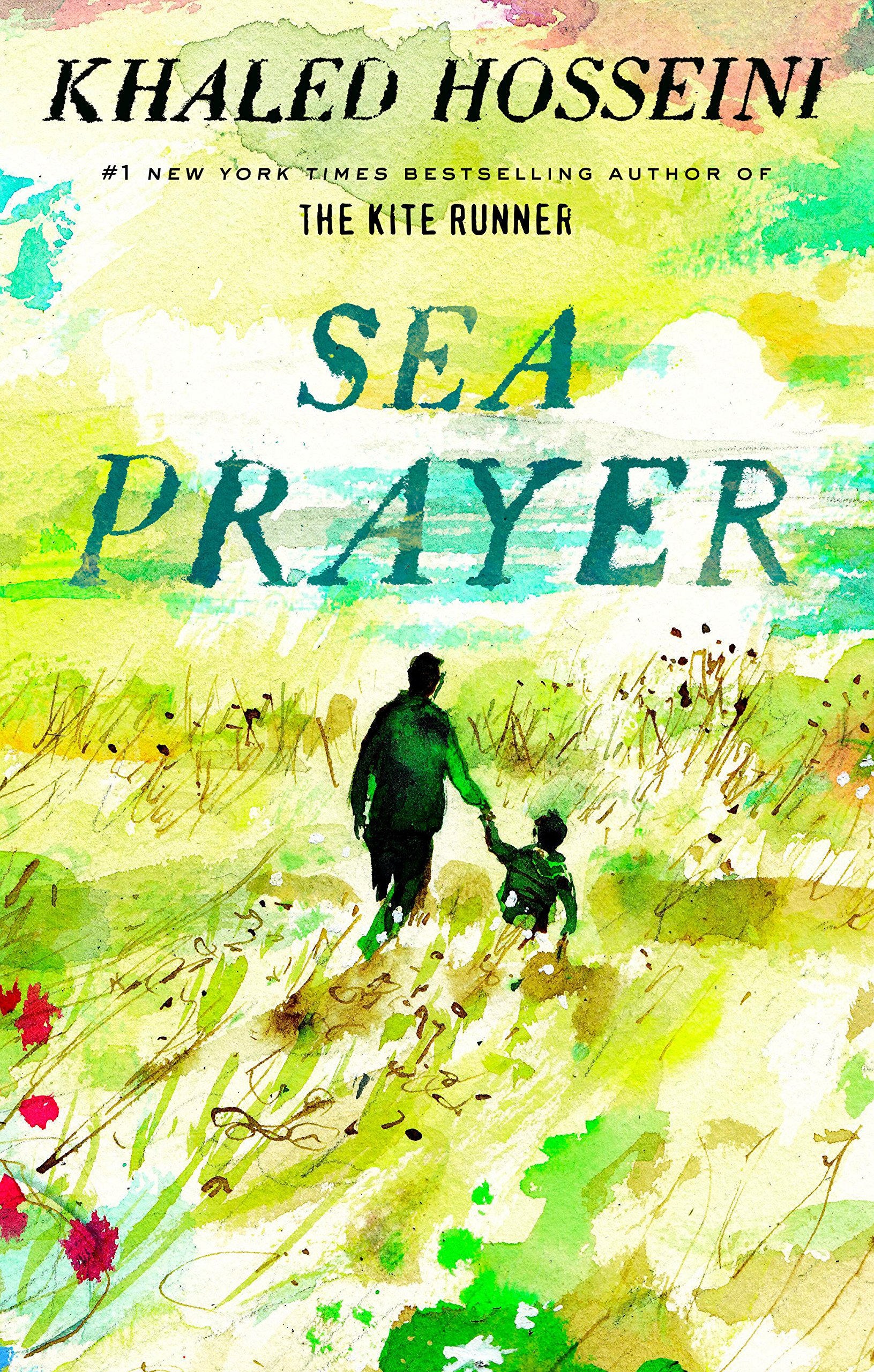
Released amid the onslaught of heart-wrenching news about emigration, Sea Prayer may be the Sophie’s Choice for our century. Like the original, this one stems from war and a parent’s impossible decision. This time, though, the parent telling the story isn’t trapped in the jaws of the Holocaust, but instead is fleeing Syria before bombs or chemical weapons kill his son. His choice is this: Do you stay home, in a country aflame with explosions and gunfire? Or do you leave all that you have behind and board a flimsy raft on an ocean crossing that very well could be fatal?
Can you even imagine having to choose?
Written as a letter from a father to his son, the format of Sea Prayer echoes Between the World and Me, the 2015 National Book Award winner by Ta-Nehisi Coates. Both books warn of the perils brown-skinned children face in the political landscape of modern Western culture. But while Coates’s book is written to his real-life son, Sea Prayer is a fictionalized account inspired by the story of Alan Kurdi, the 3-year-old Syrian boy who drowned in the Mediterranean while trying to reach Europe in 2015. Kurdi’s name may not ring a bell, but the heavily circulated photo of his lifeless body washed up on a beach became an instant icon of the Syrian refugee crisis. If you’ve seen the picture, you will never forget it. “In the year after Alan’s death, 4,176 others died or went missing attempting that same journey,” we learn in the book’s postscript.
Sea Prayer is not the first tear jerker for the Afghan-American author Khaled Hosseini, who is well-known for his New York Times bestsellers The Kite Runner, And the Mountains Echoed and A Thousand Splendid Suns. An immigrant himself, Hosseini was born in Kabul, Afghanistan, and moved to the United States in 1980. He takes on the refugee issue with personal expertise and a deep compassion. With artistry and heart he illuminates the refugees in Sea Prayer not as “illegals” or faceless migrants, but as fathers and sons from a beautiful, culturally rich country who love their families like we love ours and who are only pulling up stakes because they have to. They are parents and children who have no better choice than to leave everything they have in hopes of staying alive.
With artistry and heart he illuminates the refugees in Sea Prayer not as “illegals” or faceless migrants, but as fathers and sons from a beautiful, culturally rich country who love their families like we love ours and who are only pulling up stakes because they have to. Sea Prayer
The book’s delicate cover art and whispery title belie the blistering politics at the heart of the story. We find ourselves in the middle of a fresh conflagration in the already hot immigration debate as conditions in Syria, Yemen, Honduras and elsewhere send people in search of safety. The most recent numbers from the United Nations show that 68.5 million people were displaced worldwide at the end of 2017 as a result of persecution, conflict or violence. Developing countries shelter most of these displaced people despite limited infrastructure and other resources. And immigration has become a defining issue in European elections. In the U.S., headlines about “migrant caravans” with thousands of people from Central America set off political firestorms.
And so it’s notable that in this thin book – the story itself is only 42 pages – Hosseini manages to keep readers’ minds focused on the characters, their losses and their challenges, without straying into hot-button geopolitical debates. In this fictionalized account illustrated with dreamy, amorphous watercolors, Hosseini is able to cut out the politics and humanize immigrants, making them both relatable and sympathetic. By maximizing on his artistic license, Hosseini crafts a story that humanizes migrants more successfully than journalists’ photographs and on-the-ground reports ever could.
It would be easy to mistake this slim and fully illustrated volume for a children’s book. Please don’t. Both Publishers Weekly and Kirkus tout Sea Prayer as a book for readers of all ages. But unless you’re ready to dive headlong into discussions with your 7-year-old about danger, death and parents’ broken promises, you probably want to steer clear until at least the tween years.
Hosseini will donate all of his proceeds from Sea Prayer to the United Nations High Commission on Refugees and to The Khaled Hosseini Foundation to fund aid to refugees.